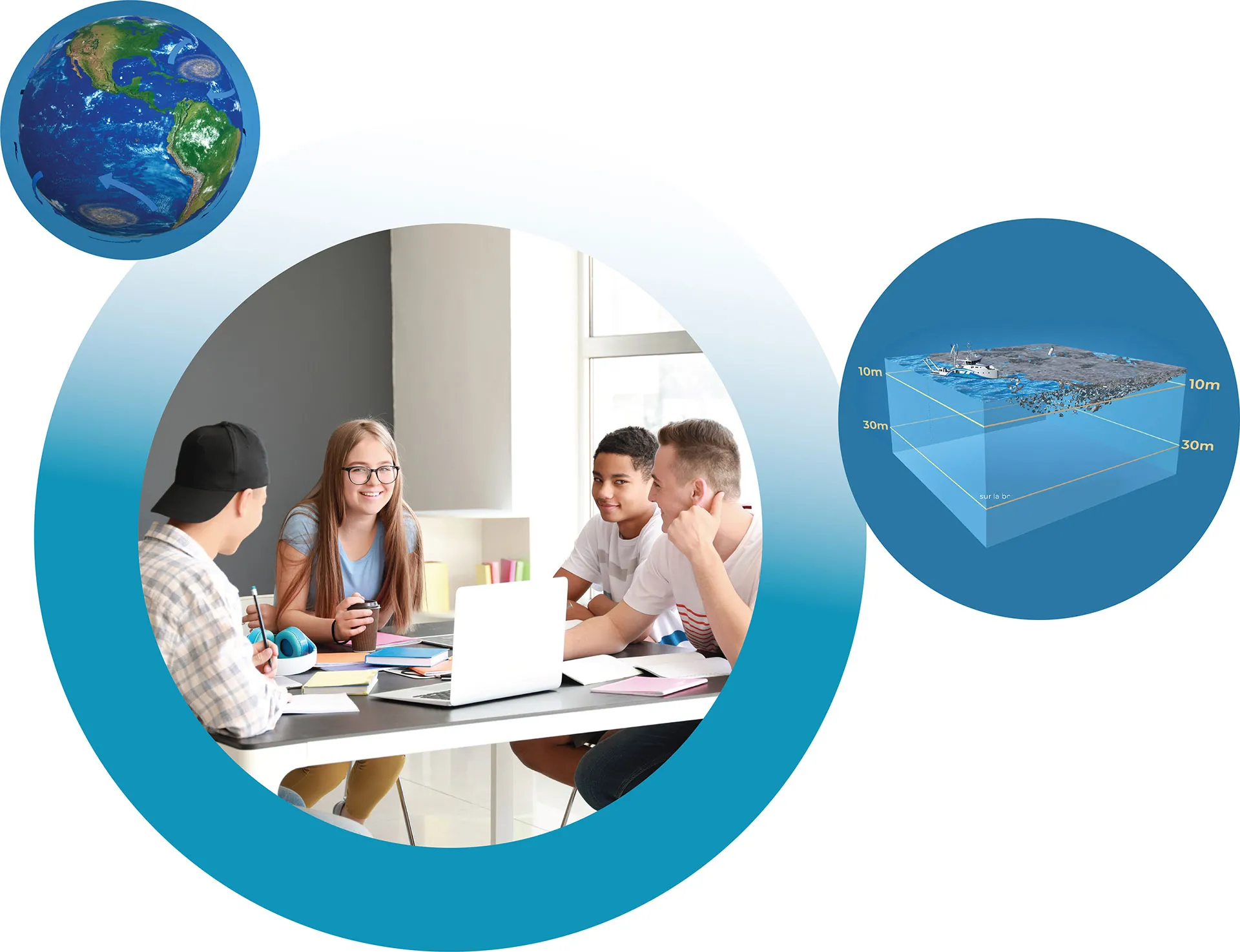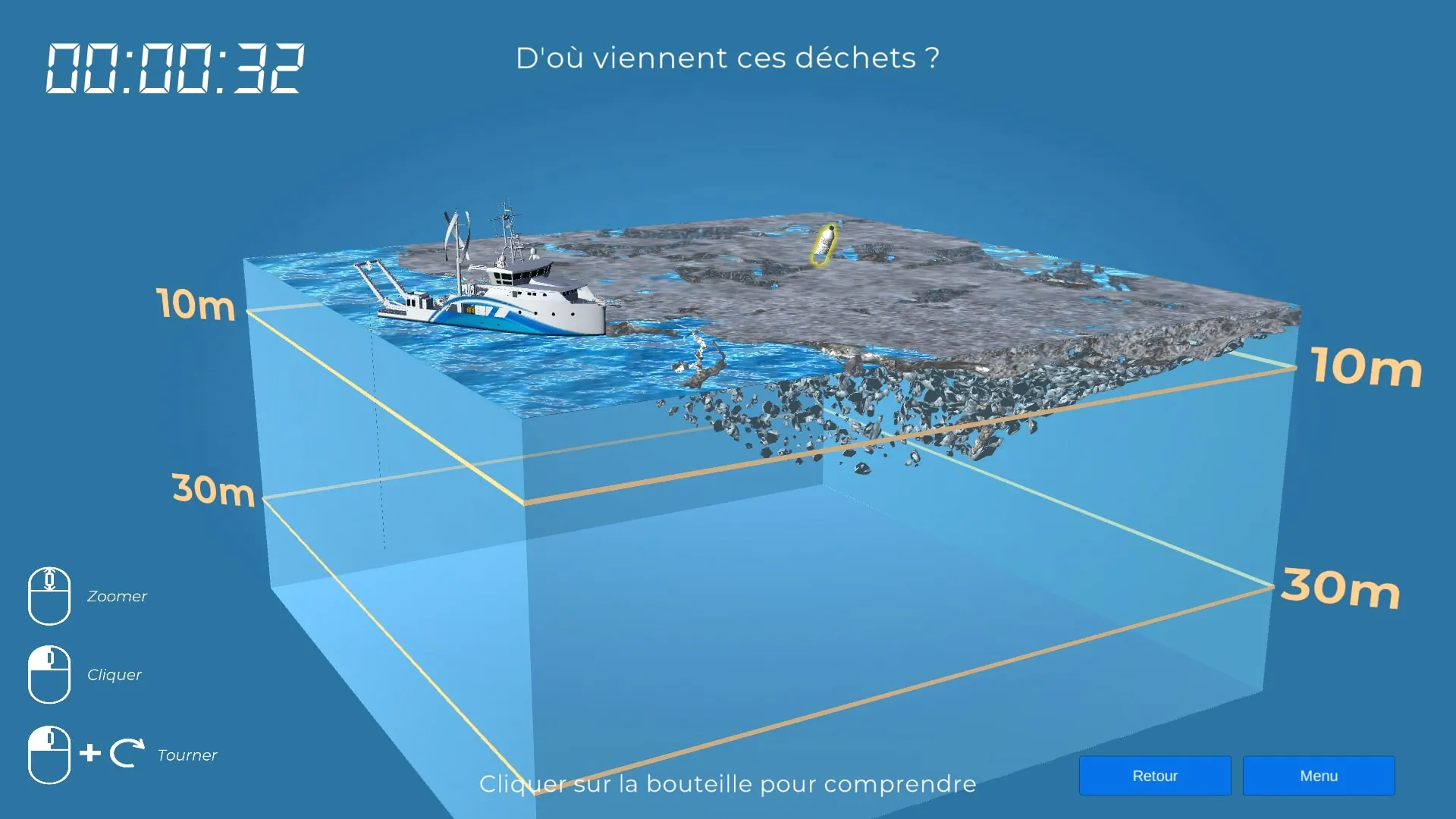“New continents”: how to understand oceans’ huge plastic pollution in middle school
Mission Ocean: discovering environmental issues while learning mathematics and life sciences

The International Plastic Bag Free Day aims to highlight different alternatives to plastic bags' use. It is also an opportunity to deepen people's awareness of all the harm these bags can do to wildlife, especially in marine and coastal environments.
Through its Mission Ocean program, La Fondation Dassault Systèmes is actively participating in the "New Continents" educational content aimed at understanding and questioning the dramatic plastic pollution of the seas and oceans, also known as the Seventh continent. This initiative was co-created by the La Fondation Dassault Systèmes, the French Ministry of Education, Réseau Canopé, Onisep and Ifremer, and designed to raise awareness of the human impact on nature and the environment among secondary school students. To this end, it mixes several disciplines of school curriculum - usually taught separately - by combining 3D presentations (to explain how garbage continents are formed) and mathematical calculations of their volume (based on comparative exercises in geometry and algebra).

Mission Ocean gathers a set of 3D and immersive educational contents that allow deepening the school subjects while putting them into context with issues related to the understanding and the respect of life in the oceans. Part of the educational program will be unveiled at the International Union for Conservation of Nature congress (IUCN) this September in Marseille, France; this will also feature an application developed specifically to track the path of plastic waste from a coastal area to forming a plastic continent in the open ocean.
"New continents" echoes the International Plastic Bag Free Day to give teenagers the keys to grasping and comprehending a phenomenon, which is sometimes misunderstood. By observing it with a 3D application that offers the most realistic visualization possible, middle school students can observe the consequences of simple actions involved in getting rid of plastic waste. Afterwards, the forming of an actual continent of plastic bags is explained and represented with contextual information. Life sciences education deals with the generation of surface currents by means of experiments in the classroom, whereas mathematics is used to calculate an approximate volume of the plastic continent thanks to factual data. A comparison with the size of the school buildings then also provides an interesting insight to measure the impact of the phenomenon.
The ambition of a deeper knowledge of the mechanisms gradually leading to pollution, beginning with ordinary everyday behaviors, has found its rightful place in education. It supports a more inclusive form of teaching and opens up to new ways of understanding and learning for young people. La Fondation Dassault Systèmes is not only committed to these educational means, but also to the development of discovery and inspiration-based methods, to enable the acquisition of new skills and spread them to our surrounding world.
About La Fondation Dassault Systèmes
Since 2015, La Fondation Dassault Systèmes has been supporting the transformation of education, research, and the way we study cultural heritage. Beyond new skills, constructive collaborations, and an aspiration to reimagine and support a more sustainable world, the aim is above all to instill a spark around science and technologies for future generations. At the core of knowledge transmission, virtual worlds enable to better comprehend the world, and to push back the boundaries of understanding, thanks to stakeholders’ active commitment.
As a catalyst for know-how and passion, La Fondation Dassault Systèmes values involvement and sharing spirit, notably through skills sponsorship, to place human interactions at the heart of learning.
It operates through three foundations in Europe, India and the United States.